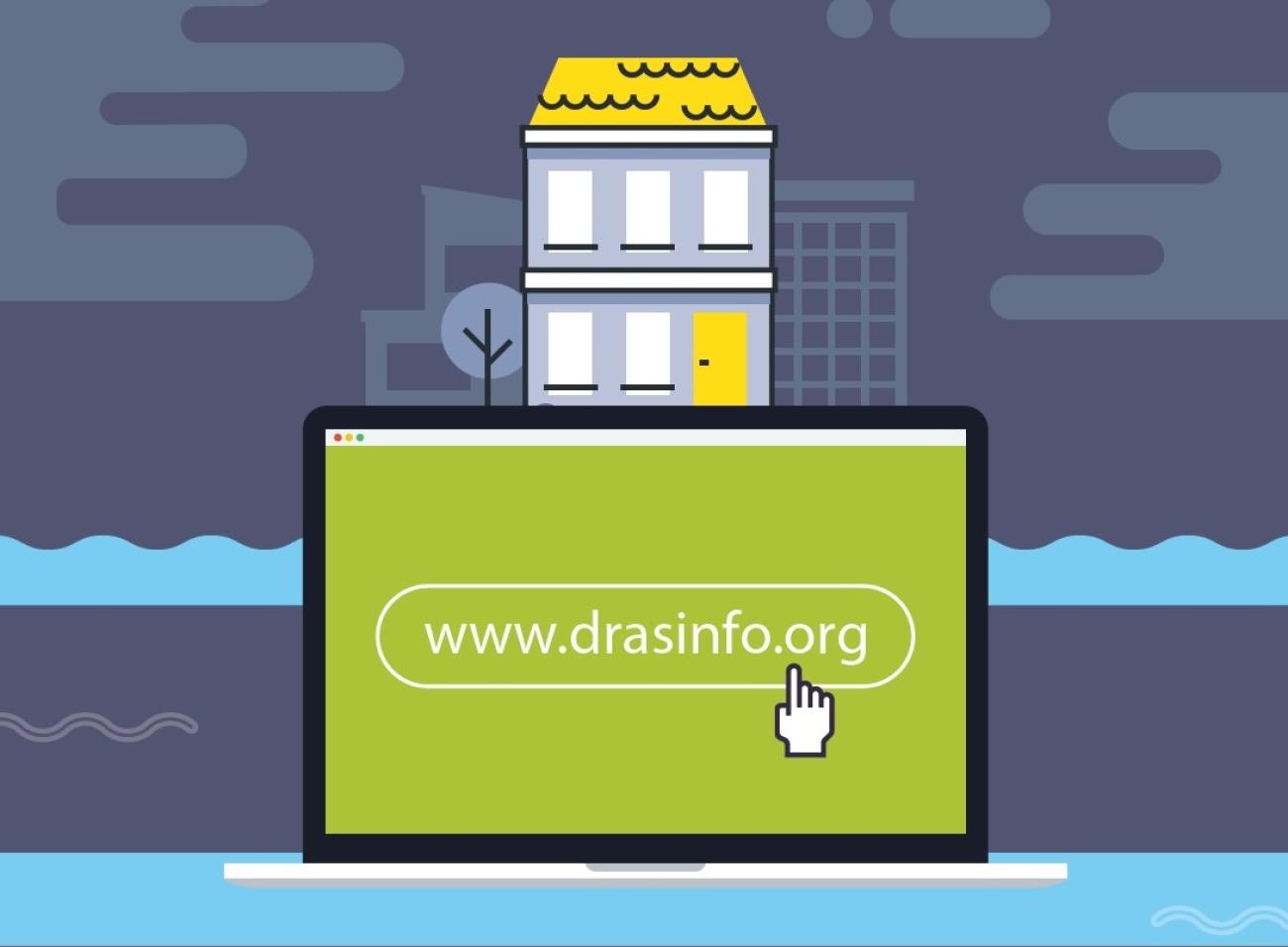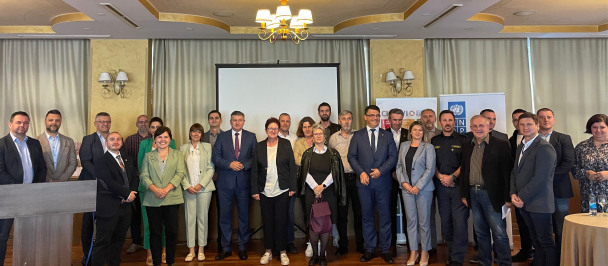The City of Bihać has taken important steps towards strengthening protection and rescue services through a series of activities under the Joint Program of the Government of Switzerland and the United Nations "Disaster Risk Reduction for Sustainable Development in Bosnia and Herzegovina". Together with nine other cities and municipalities, Bihać has been participating in the implementation of the Joint Program since 2019.
One of the important program activities is the establishment of an online Disaster Risk Analysis System (DRAS) that provides information on exposure to floods, landslides, earthquakes and mine suspected areas in the cities and municipalities participating in the program. DRAS is an online platform that provides decision-makers and residents with unhindered access to scientific data on natural and other hazards, with the aim of raising awareness of the risk of disasters in a particular location.
From the beginning of 2021, the residents of Bihać have access to this platform. In the past period, local institutions and protection and rescue services in Bihać have jointly ensured that all necessary information is available on DRAS system, which is part of the official website of the City of Bihać and as such is at the service of citizens, public institutions, and companies. Support in the process of establishing the DRAS was provided by the United Nations Development Program (UNDP), which together with other UN agencies in BiH is implementing the Joint Program.
Elmedin Mehadžić, coordinator for this program in the City of Bihać underlined that citizens have embraced the DRAS platform due to the simplicity of use and up-to-date data. The platform benefits are also recognized by the local communities that have mine covered areas in its vicinity and communities along the Una river that are often flooded.
"Thanks to the DRAS platform, citizens have insight into locations where they are planning to build the facilities, and in the same time, the application has increased awareness among citizens when submitting documents for construction in the risk prone areas. The DRAS platform is also important for the development of tourism, to position Bihać as a safe destination for visitors from BiH and abroad" said Mehadžić.
He adds that the City Administration of Bihać is using the DRAS platform in its daily activities performed by the relevant services, particularly by those dealing with property issues. On the other hand, the Civil Protection Service of Bihać is using the DRAS platform as a good basis for preparing rescue plans and responses to crisis situations, particularly to floods, fires and earthquakes which have become frequent in the region of Bihać over the past years.
The DRAS system consists of three Modules, of which Module 1 is publicly accessible and Modules 2 and 3 are accessible to respective local authorities in accordance with their user rights.
Module 1 uses hazard maps and projects them onto publicly available Google maps, making them easy to search and use. This Module is related to the data at the precipitation and water levels, which is publicly accessible thanks to the Hydrometeorological Institutes and Water Agencies.
Module 2 of the DRAS system allows local governance authorities to view the information on affected and vulnerable groups of population on the spatial maps and overlaps this data with hazard data, which facilitates better inclusion of vulnerable groups into the planning of prevention and response in emergencies.
Module 3 provides rapid computer analysis and preparation of spatial risk assessments for local authorities through a combination of scientific hazard data, and land use and sensitivity data in accordance with the methodology of the EU Floods Directive. This tool provides local communities with objective and precise calculations of risks using scientific data which exists at higher levels to support evidence-based decision making.
“We are convinced that in the next period, the DRAS platform will be extremely important for our community which wants to reduce disaster risks and thereby protect human lives and property of our citizens through preventive action undertaken in all segments of our society”, Mr. Mehadžić emphasized.
In addition to promotion of this platform, the numerous other activities aimed at undertaking timely action in crisis situations have been implemented in Bihać. Support has been provided to continuing operation of the Local DRR Platform and its capacity has been assessed. The team undertook three training sessions – sustainable development, climate change and disaster risk reduction, project management and crisis management – based on the disaster risk reduction (DRR) capacity assessment.
“We took a serious and proactive approach as soon as we signed the DRR Platform and immediately after Bihać joined the Programme, so our representatives in the civil protection and firefighting, social and child protection and education and agriculture sectors take an active part in identifying problems and looking for solutions, improving the organization of work and developing protection and rescue documents”, said Mr. Mirsad Šehić, a member of the local DRR Platform, from the Service for Civil Protection, Technical and Joint Services of the City of Bihać.
“Crisis management as well as disaster mitigation and preparedness measures have to be incorporated into the strategic documents and development planning as it is one of the ways to change the current increasing trend of negative impacts of disasters. Through the Joint Swiss and UN Programme, UNDP with partners supports the building of resilience of ten municipalities to natural and other disasters through an integrated approach which includes civil protection, health, education, social protection and agriculture sectors as important stakeholders in the preparation of disaster risk management strategic documents. Apart from assisting decision-makers, the DRAS system gives an insight into specific hazards within a certain area. By using various tools, we are working together on a different approach as well as on raising awareness about the importance of disaster management, mitigation of disaster effects and better preparedness”, said Ms. Steliana Nedera, UNDP Resident Representative in Bosnia and Herzegovina.
The City of Bihać Risk Assessment has been upgraded to include the information on flood and landslide maps and hazards, social protection, sexual and reproductive health and gender-based violence.
“It is important to emphasize that in the future, we will be integrating the documents made through the local DRR Platforms into the Disaster Risk Assessment for the City of Bihać as the fundamental document which treats this issue in our community as well as into the Development Strategy of the City”, Mr. Šehić added.
It is planned to amend the current Federation Methodology for conducting a hazard vulnerability assessment and developing protection plans, whereby certain issues covered by the Platform activities will be incorporated into the legal framework. The City of Bihać believes that these activities facilitate the involvement in the Programme of representatives of the highest instances of the protection and rescue authorities in the country, primarily the Ministry for Security of BiH, and the entity administrations for Civil Protection.

 Locations
Locations




